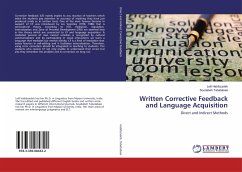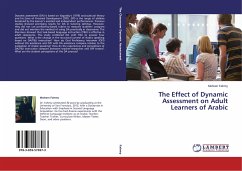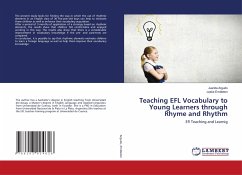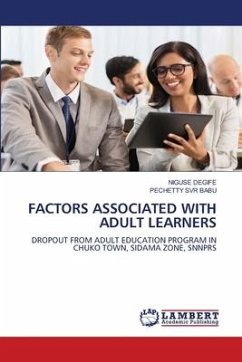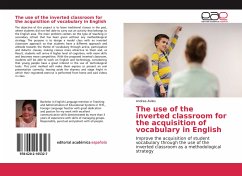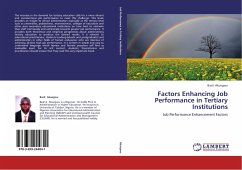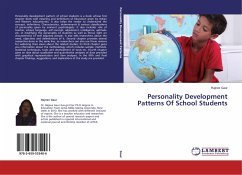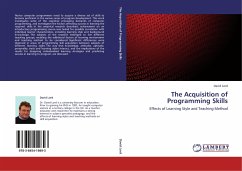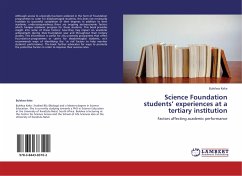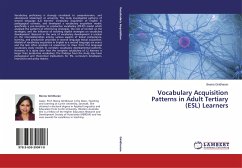
Vocabulary Acquisition Patterns in Adult Tertiary (ESL) Learners
Versandkostenfrei!
Versandfertig in 6-10 Tagen
58,99 €
inkl. MwSt.

PAYBACK Punkte
29 °P sammeln!
Vocabulary proficiency is strongly correlated to comprehension, and educational attainment at university. This study investigated patterns of second language (L2) learners' vocabulary acquisition of English in pedagogical contexts, and developed a vocabulary acquisition model, specifically a pre-receptive to productive vocabulary (PR-PV) model which analysed the patterns of inferencing strategies, the role of context on the strategies, and the influence of teaching explicit strategies on vocabulary development. Research in the area of vocabulary development is unclear on the interrelationships...
Vocabulary proficiency is strongly correlated to comprehension, and educational attainment at university. This study investigated patterns of second language (L2) learners' vocabulary acquisition of English in pedagogical contexts, and developed a vocabulary acquisition model, specifically a pre-receptive to productive vocabulary (PR-PV) model which analysed the patterns of inferencing strategies, the role of context on the strategies, and the influence of teaching explicit strategies on vocabulary development. Research in the area of vocabulary development is unclear on the interrelationships among various aspects of lexical competence, learning, and production processes in second language lexical acquisition. Models of vocabulary acquisition in English as a second language are scarce and the lack often prompts L2 researchers to draw from first language vocabulary study models to correlate vocabulary developmental patterns. However, it is quite clear that the receptive vocabulary of L2 learners is larger than productive vocabulary. The findings from the study may have pedagogical and theoretical implications for ESL curriculum developers, instructors and policy makers.



